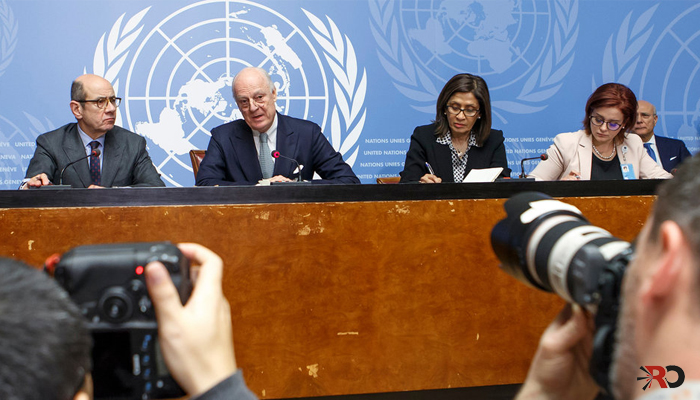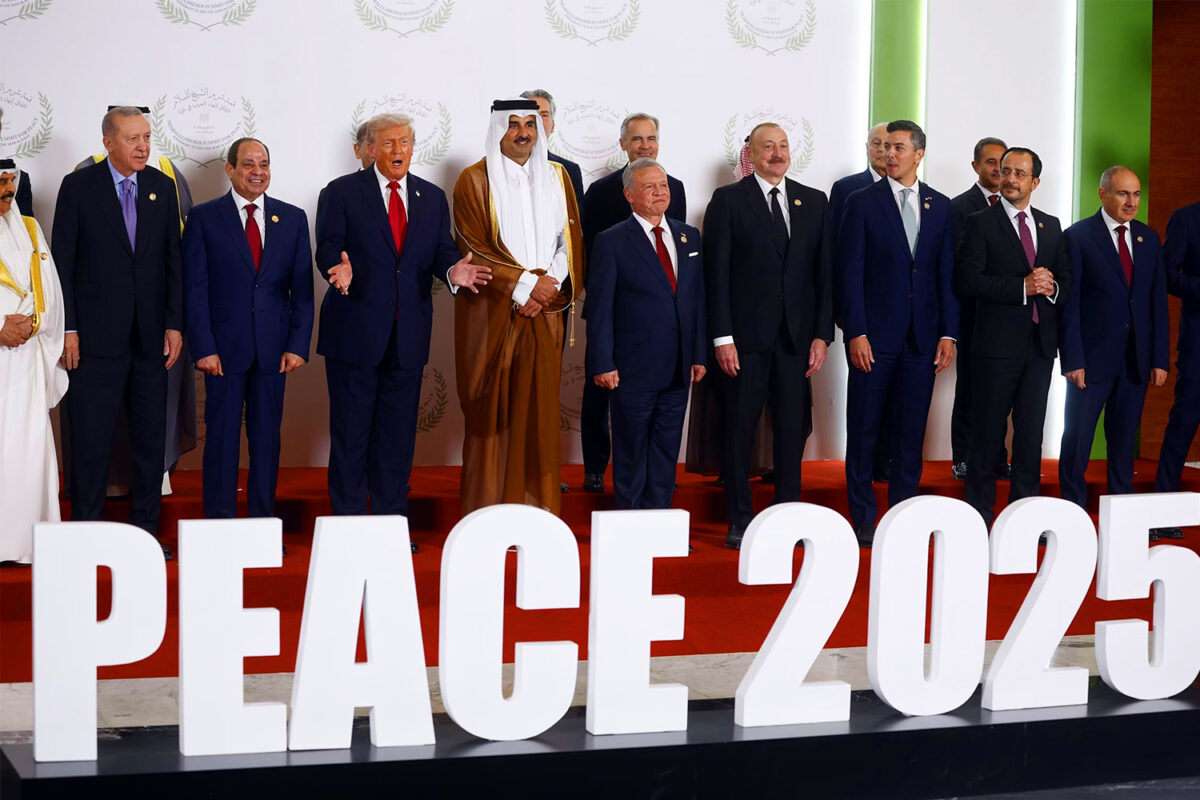Muhammad Ubaid
On 4th February 2016, UN envoy and chair of the Geneva peace talks Staffan de Mistura announced the temporary suspension of talks, citing the need to bring a “concrete” result for the Syrian people who continue to suffer in the conflict.[1] These talks are due to resume on February 25th 2016. This announcement came at a time when the Syrian regime had intensified airstrikes on rebel positions, laying siege to areas around Aleppo and targeting rebel supply lines. But 5 years since the uprising first began, western inspired solutions always end in failure and there are 3 main reasons for this.
Firstly, the invitations that are sent out for such conferences have always been limited and targeted to a select few opposition groups. An examination of the attendees of the current talks reveals the lack of representation of those standing-off against the regime in Syria. The entire opposition in Syria was represented by the High Negotiations Committee (HNC) which is made up of 34 entities within Syria. This group was formed under the supervision of Saudi Arabia, and was also hailed by US foreign secretary John Kerry as a success. The HNC was presented as all-inclusive of Syria’s rebel groups and ethno-sectarian make-up, affording them the legitimacy to travel to Geneva. But this committee largely consists of those who are vying for positions in a future government, rather than representing the Syrian people. The head of the committee is Riad Hejab, who served under Bashar al Assad. Despite defecting early on, he was closely aligned with the Free Syrian Army who, after joining the SNC, lost what credibility they had.[2] Nine of the 34 member council are politicians in exile whilst others including Safwan Akkash, secretary of the National Coordination Body and a communist politician. The Geneva meetings and all the meetings that have taken place have always seen handpicked individuals and groups afforded invitations and not the main groups that are supported by the Syrian people. Thus, such negotiations are always going to fail as they consist of factions with no influence over the people of Syria.
[pullquote align=”right” color=”” class=”” cite=”Al Jazeera” link=””]“At the start of the conflict, the US publicly stood against (Syrian President) Bashar al-Assad. But at the same time they kept making false promises to the opposition. And now their true position is out in the open. The US is not standing against Assad. They are accepting him on the negotiating table and consider him the leader.”[/pullquote]
Secondly, the major groups fighting in Syria who have made considerable success and are bleeding the al-Assad regime to death, with support from the people of Syria, are never invited to such talks. Ahrar al Sham attended the Riyadh conference back in December 2015, but refused to sign the final document,[3] whilst Jabhat al-Nusra is considered an al-Qaeda franchise and never invited. Both groups enjoy considerable support as they defeated regime forces in much of the North of Syria and administered these regions winning much praise from the Syrian people. Their Islamic credentials also resonate with the people too. Not only are they the two largest individual groups but they are a part of a larger coalition called Jaysh Al Fatah whose authority and control has been growing exponentially since the beginning of 2015. None of those groups are party to the Geneva talks though. Much of the attendees at the Geneva conferences are secular groups, whilst the stronger Islamic ones are constantly left out. Jabhat al Nusra is accused of links to Al Qaeda, in spite of the fact that Nusra leader, Abu Muhammad Jolani, has publicly stated that attacks outside of Syria will not be staged, planned, or financed from Syrian territory under his control and his very public fall-out with ISIS. Without these two groups no resolution cannot be implemented in Syria and this is why successive Geneva conferences continue to fail.
Thirdly, the Geneva talks, at its heart, has negotiations with the regime in Damascus as a central pillar, despite the fact that the people of Syria are fighting to overthrow the regime. The inclusion of ex-regime members and the exclusion of influential groups demanding a change in regime demonstrates the Geneva talks are to preserve the al-Assad regime. The continued bombardment of rebel held towns during negotiations is a way for the international community to pressurise rebel groups and those within Syria to accept the outcome of negotiations in Geneva. As rebel positions are lost, negotiating with the al-Assad regime is presented as the only legitimate solution. All the actors with a stake in Syria now present al-Assad as part of the solution. This was highlighted by al Jazeera: “At the start of the conflict, the US publicly stood against (Syrian President) Bashar al-Assad. But at the same time they kept making false promises to the opposition. And now their true position is out in the open. The US is not standing against Assad. They are accepting him on the negotiating table and consider him the leader.”[4]
The Geneva solution is not looking to solve the Syrian crisis, but to arrange a solution which suits the organisers of the Geneva conferences. The fact that the talks overwhelmingly include secular groups to the exclusion of the larger, Islamic groups is the reason for the failure of the Geneva talks. None of the Geneva resolutions can be implemented as they do not include the large strong groups who could implement them. These groups refuse to support the Geneva initiatives and have chosen to continue fighting the regime who they have defeated in the north of Syria and until the Russian intervention in October 2015, were bleeding the al-Assad military forces to death.
[1] http://www.sbs.com.au/news/article/2016/02/04/geneva-talks-ending-syria-conflict-paused
[2] http://www.aljazeera.com/news/middleeast/2012/08/20128691725705233.html
[3] http://carnegieendowment.org/syriaincrisis/?fa=62263
[4] http://www.aljazeera.com/blogs/middleeast/2016/01/shifting-lines-syria-160131100323293.html





